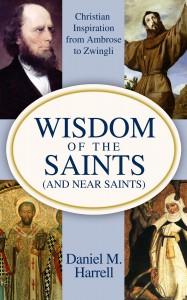 I may have been one of a handful of ministers who devoted his/her sermon this past Sunday to existentialism, but it was Soren Kierkegaard’s 200th birthday.
I may have been one of a handful of ministers who devoted his/her sermon this past Sunday to existentialism, but it was Soren Kierkegaard’s 200th birthday.
Søren Kierkegaard is the ascribed father of modern existentialism, that philosophical theory which emphasizes the existence of the individual as a free and responsible agent acting in accordance with their own determination. After detecting how too many fellow philosophers tried to make the Christian life easier, Kierkegaard subsequently dedicated himself to making it harder (which he did in part by publishing only in Danish). Focusing as he can on the despair of failure, I pull out Kierkegaard out whenever I’m having a bad day—just to make sure I milk it for everything it’s worth.
Kierkegaard was born in 1813 into a strict Lutheran home—which may explain a lot. He studied ten years to become a minister, but never made it into the pulpit due to an intense and nagging sense of uncertainty and melancholy that drove his entire career. “Where am I? Who am I? How did I come to be here? What is this thing called the world? How did I come into the world? Why was I not consulted? And If I am compelled to take part in it, where is the director? I want to see him.” Kierkegaard’s uncertainty did not prevent him from falling in love, but it did keep him from tying the knot. He fell head over heels for a woman named Regine Olsen, but soon broke off their engagement once his doubts got the better of him. This decision haunted him for the rest of his life—thankfully—since so much of his output derived from the despair he experienced over abandoning true love. His first book was a justification of the break-up, entitled Either/Or which set forth the basic tenet of his philosophy: everybody has to make choices among the options present before them. “I see it all perfectly; there are two possible situations — one can either do this or that. My honest opinion and my friendly advice is this: do it or do not do it — you will regret both.” “Our life can only be understood backwards, but it has to be lived forwards.”
In contrast to the reigning emphasis on “idealism” in his day, Kierkegaard stressed existence which he argued to be real, painful and more important than any idea. “Listen to the cry of a woman in labor at the hour of giving birth,” he wrote, “look at the dying man’s struggle at his last extremity, and then tell me whether something that begins and ends thus could be intended” as ideal. Though disposed toward despair, Kierkegaard nevertheless saw the hard reality of life as an invitation to faith. Faith for Kierkegaard was based on neither doctrinal conviction nor positive feelings, but on a passionate commitment to Christ in the face of uncertainty; a risk of belief that demands denial of self.
“The matter is quite simple,” Kierkegaard wrote, “The Bible is very easy to understand. But we Christians are a bunch of scheming swindlers. We pretend to be unable to understand it because we know very well that the minute we understand we are obliged to act accordingly. Take any words in the New Testament and forget everything except pledging yourself to act accordingly. My God, you will say, if I do that my whole life will be ruined. Herein lies the real place of Christian scholarship. Christian scholarship is the Church’s prodigious invention to defend itself against the Bible, to ensure that we can continue to be good Christians without the Bible coming too close. Dreadful it is to fall into the hands of the living God. Yes, it is even dreadful to be alone with the New Testament.”
To celebrate Kierkegaard’s birthday in a most brilliant fashion, be sure to collect my colleague, Kyle Roberts’ new book.











